Best Two Point Campus upgrades and research projects
What to research and how to upgrade in Two Point Campus
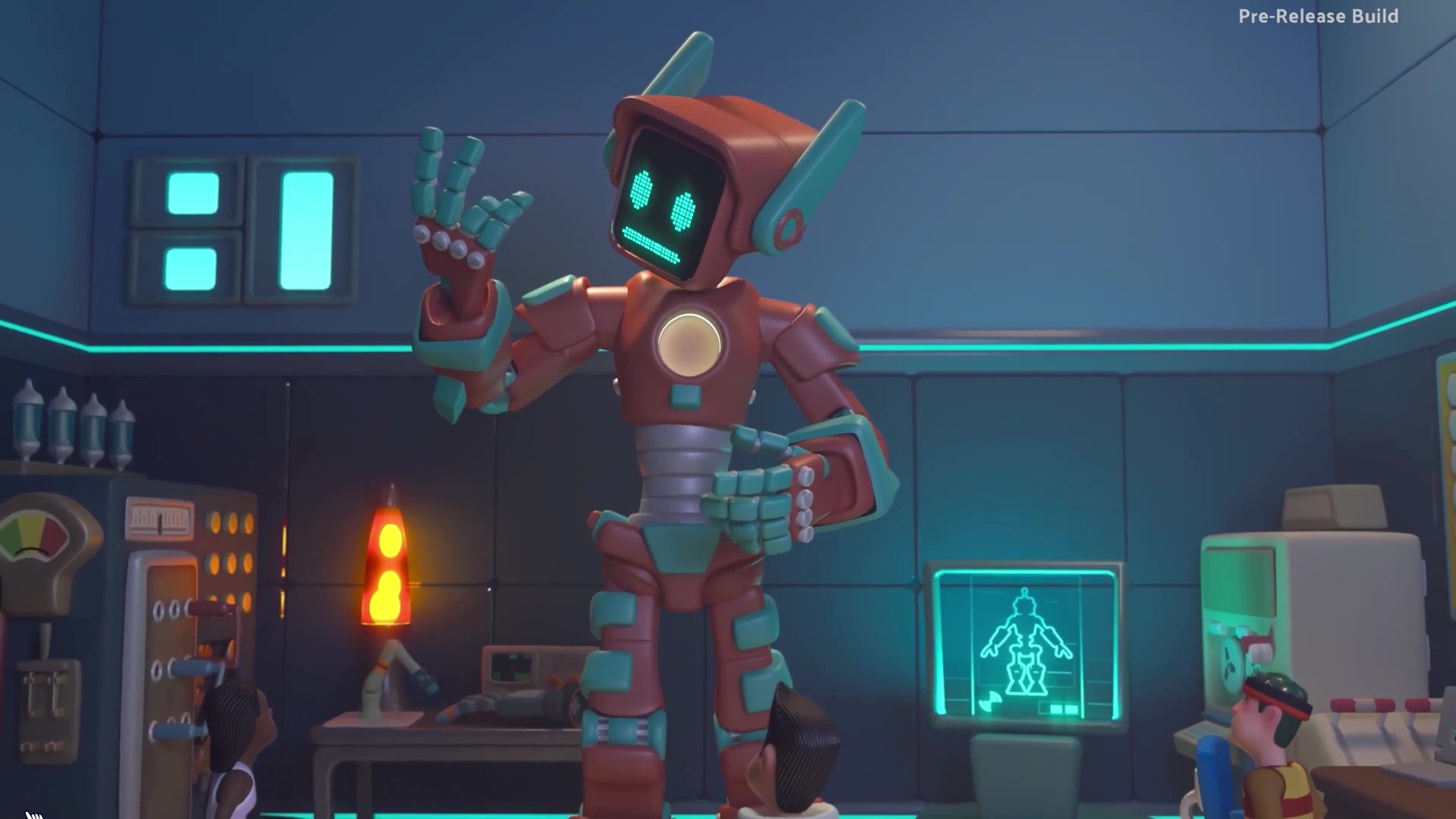
The best Two Point Campus upgrades and research projects are nearly always those that return the most rewards for the initial time and money investment, so you should prioritise them by the common use and accessibility of the reward. Or, to put it more simply, research the things you'll want to upgrade most often, especially considering that research projects in Two Point Campus carry over between colleges and don't have to be researched again - though you do still need to install the upgrades, if you've got them.
Below we've scrubbed Two Point Campus to find all the best research projects and upgrades you can get in the game, whether for higher grades, Kudosh or more, as well as the best ways to research projects quickly and as fast as possible.
Best upgrades to research in Two Point Campus
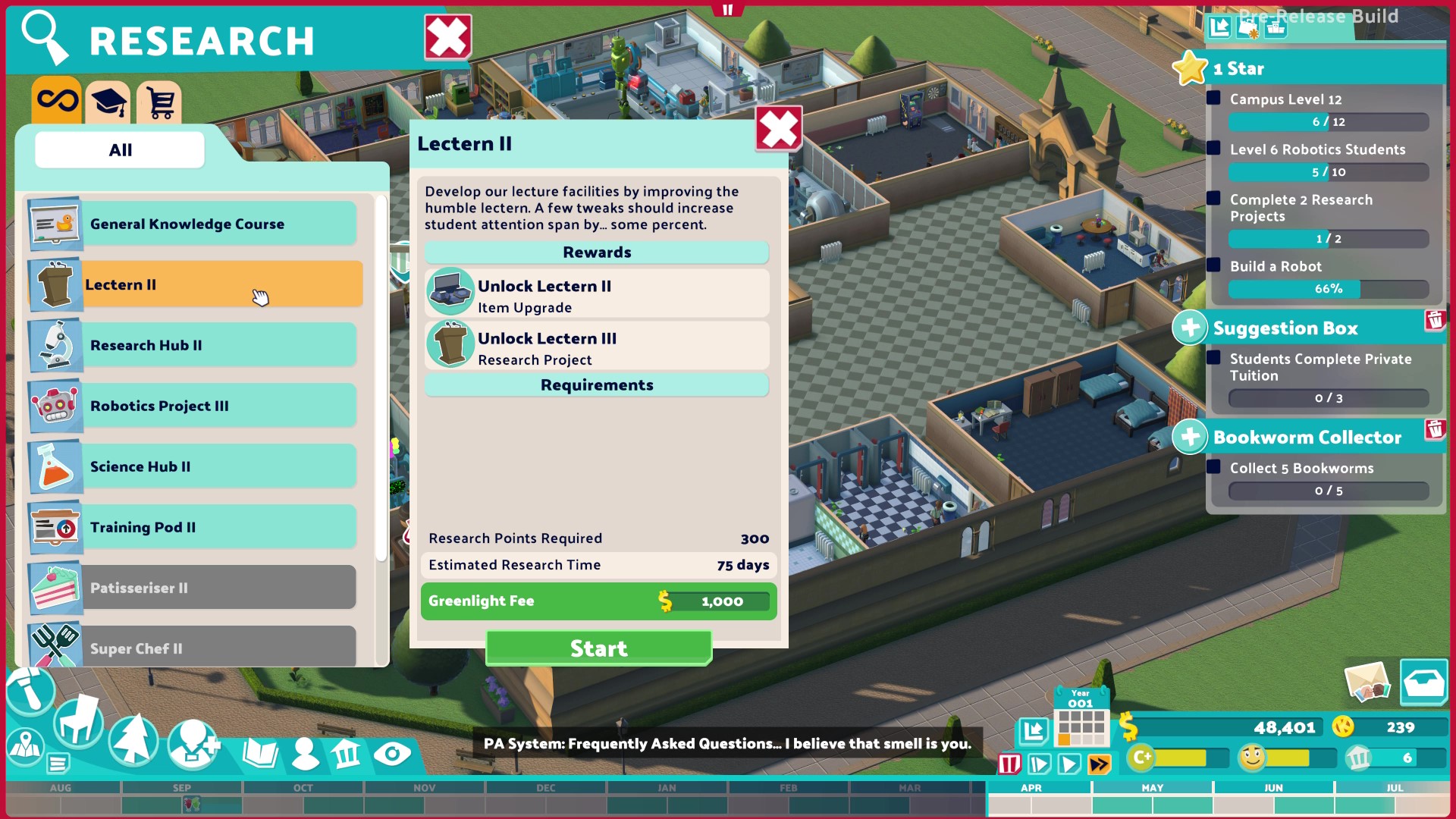
The best upgrades to research in Two Point Campus from the Research Hub are those you'll get the most use out of. Researching isn't too expensive, but it is incredibly time-consuming, so committing to a project means you should pick the best ones. Here's some key focuses you should get early on:
- Lectern: Every course in Two Point Campus requires a Lecture Hall, and upgrading the Lectern improves all learning done within that Lecture Hall, improving the Two Point Campus student grades. It's a no-brainer to stop your students being no-brainers, and serves as a general upgrade to all learning done from that point on.
- Research Hub: Actually upgrading the Hub itself makes it more efficient, decreasing the time needed for all research projects run through it from that point onwards. Get it early, and you'll thank yourself for it later.
- Omni-Cure: Once you hit later campuses, injuries are incredibly common, and have a negative effect on student happiness - and thus everything else. Making your Medical Office more efficient at churning out painkillers and antidepressants is a big help here.
- Training Pod: Improving your Staff skills is almost as important as researching new tech, but the Training Pod is slow - at least until you sink some time to researching better models. Once done, you'll be able to pump out new staff skills much more efficiently.
- Kudosh/Money projects: These are, to some extent, randomly generated and hard to predict, varying from campus to campus - but the principle is the same either way. If you've got nothing else to research and staff without any important work, put them here and make sure they're earning you something back.
Past that, you should focus on researching the courses and projects you run most often. If you're commonly teaching science, research upgrades to that course, for example. It's ensuring the biggest payback for your investment - like the Lectern, on a slightly smaller scale. Building your infrastructure and resources in tandem with increasing Two Point Campus course points is the key to victory.
How to research things in Two Point Campus
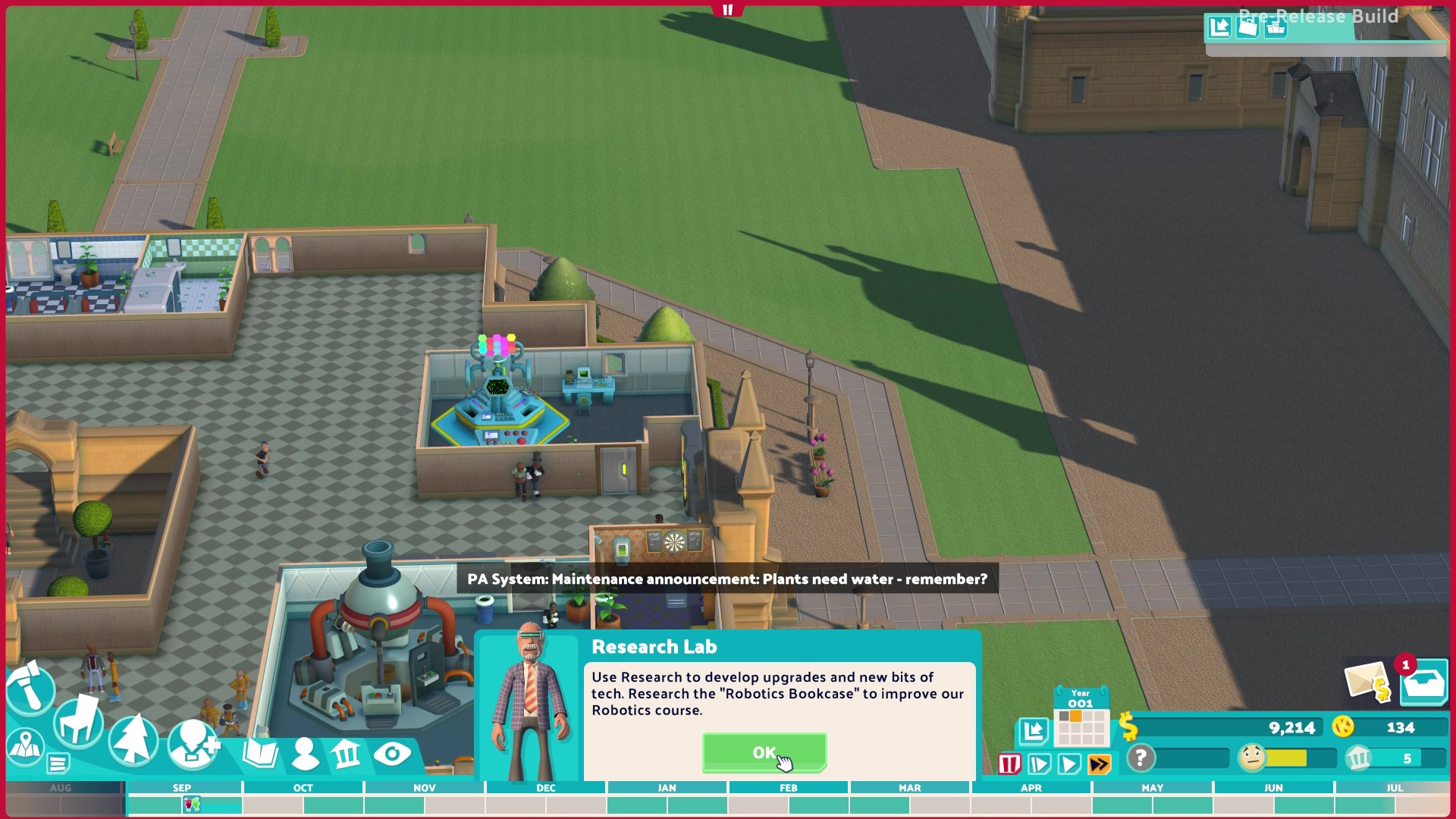
Researching as a mechanic is broken into several steps, which we've laid out below for those who need a refresher.
- First, build a Research Lab, a dedicated room for researching projects. The lab unlocks in the Mitton University level.
- Select a teacher and assign them to the Lab like you would with any other room. Teachers can have the research skill (represented by a microscope), which means they research more efficiently.
- Click on the Research Hub - the giant device in the room - and press "Start New Project".
- A list of possible projects to be researched will present themselves. Some projects are locked until you meet the right conditions, such as staff with certain skills or specific rooms.
- Select the project you want and pay the "Greenlight Fee" to have the assigned teacher begin research. There will be an estimated research time attached.
- When the project is done, you'll automatically be provided with the rewards and alerted.
The Greenlight Fee is usually very small, but the cost of Research is actually in staff wages. Because projects require a teacher constantly at work, it means you lose Two Point Campus money by having a professional looking through microscopes when they could be teaching courses or running private tuition. That doesn't mean that research isn't worth it, but the price is higher than you think - and that's before we get into upgrades.
How to upgrade in Two Point Campus
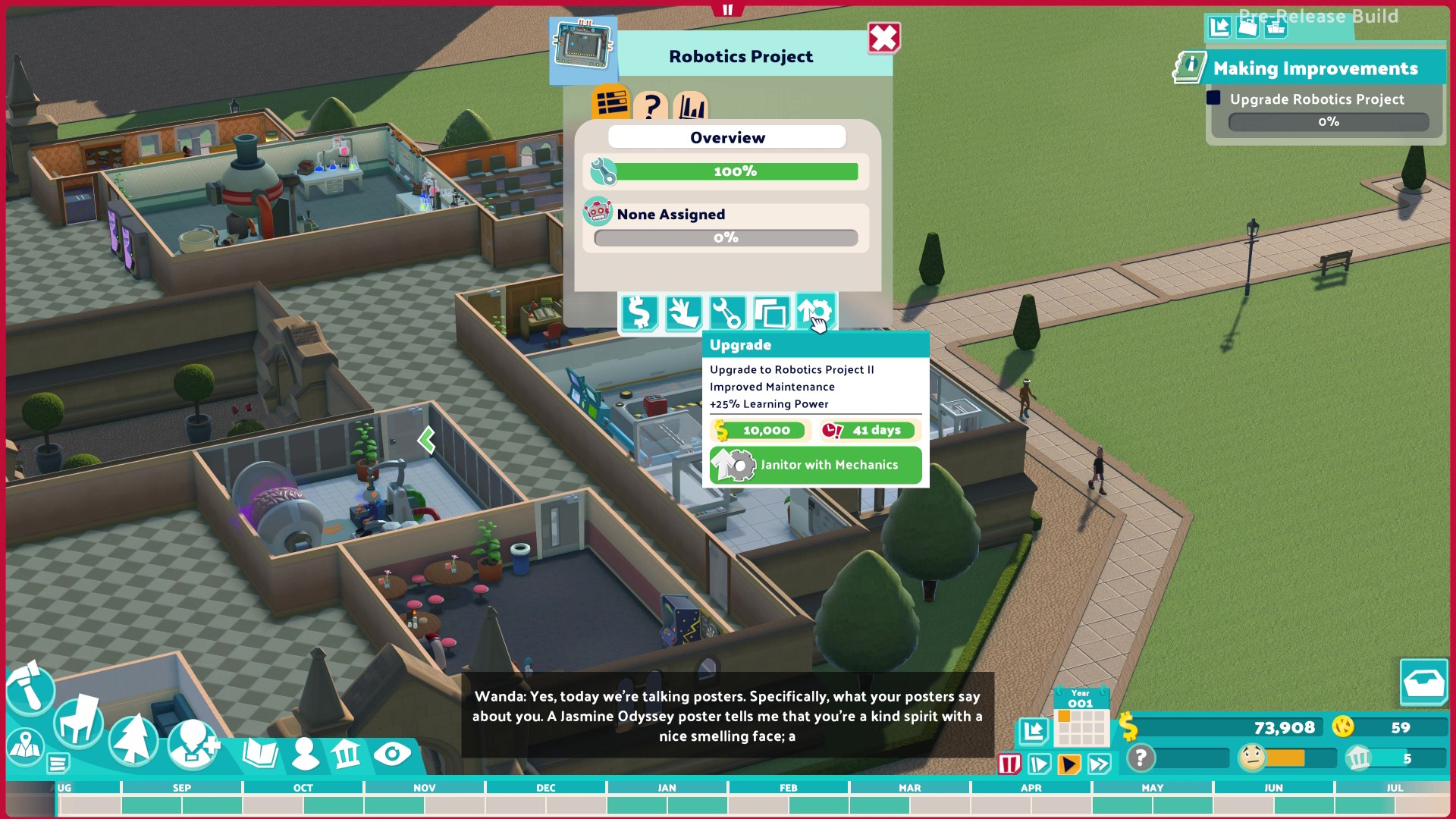
Once you have an upgrade for your equipment researched, it isn't applied automatically. Click on the object you've researched an upgrade for - for example, the Lectern - and there'll be an icon of a gear with an upwards arrow next to it. Hovering the mouse over that will give you a price of upgrades, a staff requirement (nearly always a janitor with at least one level in Mechanics), and the time needed for that upgrade, which varies according to skill level of that staff member. Click on the upgrade button to commit yourself to the improvement.
Items that are upgraded are done so passively, and still allow the item to be used during that time - so the Omni-Cure can still be used while the janitor is upgrading it, for example. Items you buy always appear in an unenhanced state; nothing comes already upgraded. Also keep in mind that the Janitor will be busy while they tinker with it, so they can't pick up litter and maintain objects for Two Point Campus attractiveness.
How to speed up Two Point Campus research
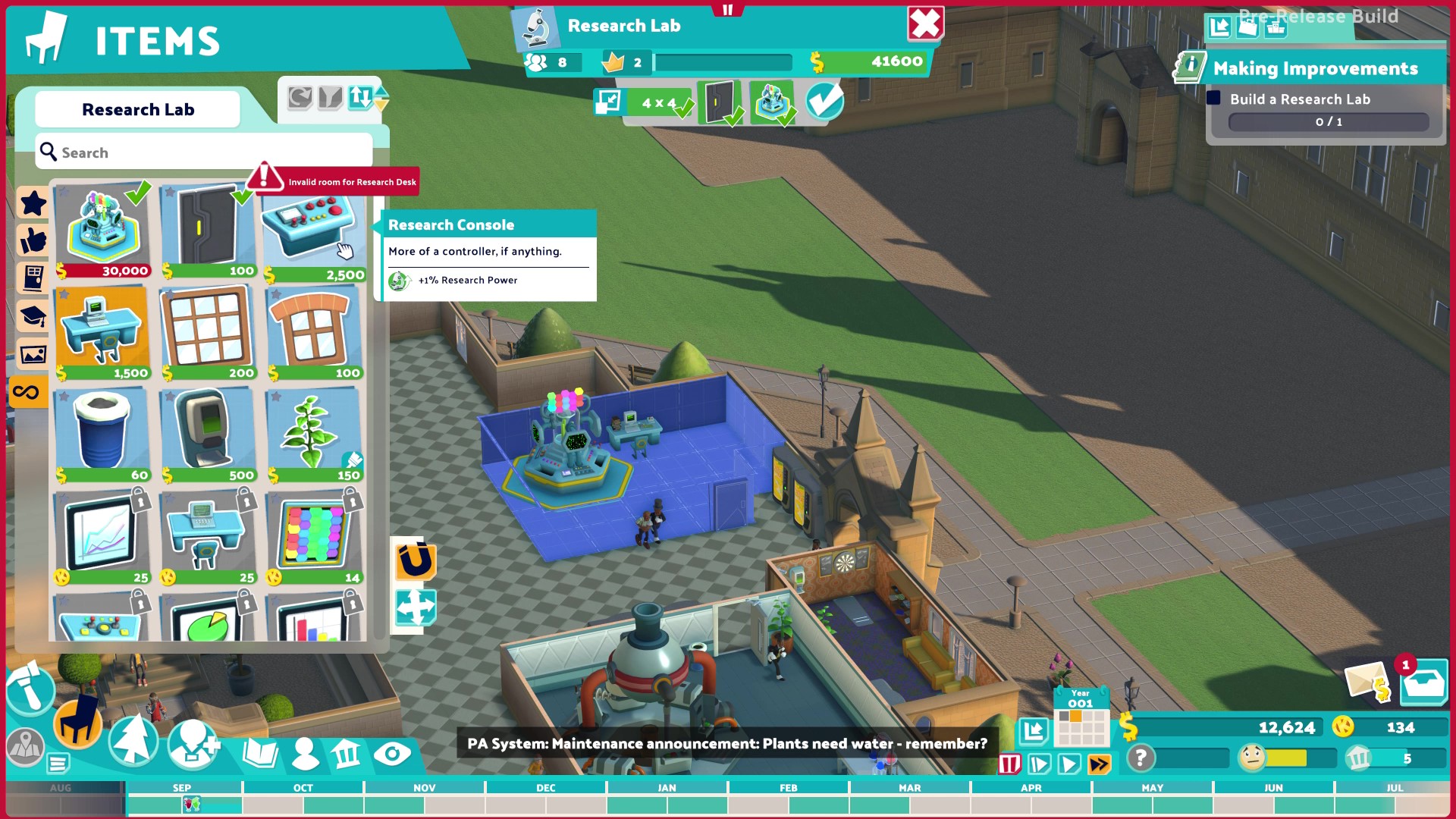
Research in Two Point Campus can be agonisingly slow, especially for some of the bigger upgrades. Here's a few ways to increase speed in the Research Lab:
- Upgrade the Research Hub itself, as mentioned above.
- Place Furniture in the Lab that boosts Research Power, such as the Research Console.
- Train your staff in Research in the Training Room.
- Ensure that staff are happy, energised, and don't have other commitments that pull them away.
Sign up to the GamesRadar+ Newsletter
Weekly digests, tales from the communities you love, and more

Joel Franey is a writer, journalist, podcaster and raconteur with a Masters from Sussex University, none of which has actually equipped him for anything in real life. As a result he chooses to spend most of his time playing video games, reading old books and ingesting chemically-risky levels of caffeine. He is a firm believer that the vast majority of games would be improved by adding a grappling hook, and if they already have one, they should probably add another just to be safe. You can find old work of his at USgamer, Gfinity, Eurogamer and more besides.


